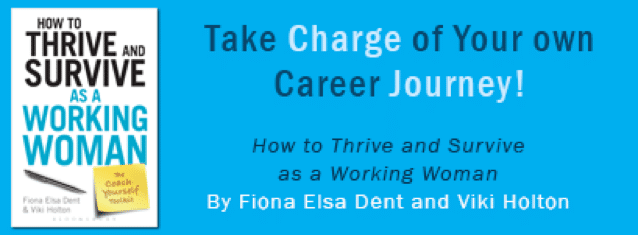4 steps to becoming a more influential woman: Focus areas for female leaders
There are many influential women in the world from all walks of life—politics, business, sports, and the arts to name just a few. Some of these women will readily admit that luck has played a major role for them, but surely that cannot be the only answer.
We believe that there are many things women can do to help themselves to be more influential and powerful. Today, we’ll look at four key areas that we believe women could focus on to help themselves: influencing approach, reputation, resilience, and planning for the career journey ahead.
Your influencing approach
Being influential is essentially a relationship skill. A major factor in understanding and developing your ability to be influential is to have an appreciation of your influencing style and approach.
Most of us have a preferred way of working with others—our influencing style. This will be based on habitual behaviors that develop because you have found that certain approaches, behaviors, and skills seem to work for you.
So, how would you describe your preferred influencing approach? Look at the table below and try to identify your primary approach:
| Directive:
An expert-driven style where you assert your views and perspectives and expect others to follow. |
Collaborative:
A team-oriented style where your aim is to involve others in the influencing process. |
| Persuasive reasoning:
An issue-driven style where your main aim is to get others to buy into your ideas. |
Inspirational:
A people-oriented style where the aim is to appeal to the emotions of others to get their buy-in. |
(Extracted from Ashridge Psychometrics – Influencing Style Preferences Inventory – Workbook)
Understanding your own natural style is important, but the real skill is to be able to flex between all four approaches to suit the situation and people you are influencing. Being aware of your influencing approach and your ability to flex this appropriately will undoubtedly contribute to the next area—your reputation.
Being influential is essentially a relationship skill.
Your reputation
Your reputation is built up over many years and is largely based on your interactions with others. This means that you must be aware of your behavior and how people perceive you.
Take account of the language you use, how you use your voice, your body language, and the overall visual impression you create. But more than this, if you want to be regarded as positive and trustworthy, then you must demonstrate a range of characteristics that truly help to build this reputation.
Look at the characteristics below. How many of these words would others use to describe you? Which of these characteristics do you feel are important for you to focus on in developing your reputation?
• Integrity• Sincerity• Genuine• Trustworthy• Principled• Honest• Consistent• Morally upright• Speaks up and out |
• Dependable• Distinctive• Compassionate• Self-disclosing• Demonstrates respect for self and others• Acts with goodwill• Reliable• Visible |
How do you wish to be regarded by others? Are there any other characteristics you would add to this list? To become an influential woman, you must devote time and energy to this important aspect of your life.
Your resilience
Resilience is something that we often take for granted until it’s gone! Perhaps you’re busy studying, or at work and at home, with a little bit of stress, but then something extra happens—maybe it’s money worries, family arguments, or illness that’s a trigger.
Sometimes, on reflection, what pushes us over the edge can seem almost trivial, but it is the extra or unexpected task. Suddenly, we feel under a huge amount of pressure, which has probably been building for months and we simply didn’t realize. You can develop resilience. There are many self-help books and guides available, but here are just two ideas that may be of value:
1.Compartmentalize
This approach was taken by some of the successful women we interviewed in our book How to Thrive and Survive as a Working Woman. Essentially, it is about focus and using mindfulness to great effect.
As one woman put it, “When I am at home, that’s where my focus is, totally. But when I’m in the office, that takes all of my energy and interest. I find that’s far better than trying to blend both—then I simply end up doing nothing well!”
Multitasking may be much admired, but it can create more problems than it solves.
Learn when to say “No.” You don’t have to accept everything that comes your way.
2. Top up on energy levels each week
Unfortunately, trying to do too much—achieving the impossible—is something women are all too good at. However, it can ultimately be damaging.
Learn when to say “No.” You don’t have to accept everything that comes your way. Remember, “me time” and keeping healthy are key components to maintaining energy reserves and resilience. This will help you cope and bounce back in times of stress and pressure.
3. Beware of unintended bias in the workplace
It’s always important to be aware of your workplace culture and the impact that this culture may have on your career prospects. For instance, one example of this is where double standards or stereotypes are applied in judging people (without people even realizing this unintended bias is happening). A young female supervisor or team leader, for instance, is seen as being too assertive and forward in meetings. Someone who’s always keen to put her views across in an assertive manner may be regarded as pushy as women are not expected to behave in this way whilst in a man this may be more acceptable behavior. A major study about the impact of unintended bias on career development has recently been conducted by Murray Edwards College, Cambridge surveying the views of nearly 6,000 men and women.
Your career journey
Do you know where you are going with your career? Not everyone spends enough time considering this important question or on planning for the journey ahead.
If you do reflect on what you want in your working life and understand your own values, then you are likely to achieve more. Of course, careers are not only about upward mobility. Not everyone wants to be a chief executive—though we definitely look forward to the day when there are more female CEOs!
What does make a difference though, and the advice given by many of the women we interviewed, is to be ambitious. As one woman put it: “Go for gold.”
There are many people around you who will be more than willing to help with advice, expertise, and practical support—perhaps as a mentor or coach. Don’t make the mistake of thinking that a mentor or coach is a short-term, limited option. Think about the approach taken by top tennis players and sports personalities who often work together with their coach season after season. It’s a key part of their success.
Find ways to develop and plan your career as this will make a difference. It’s never too late to begin to take charge of your own career journey.
In summary: the 4 simple steps to improving your career




Make sure to ask yourself: What do others think (and say) about me? What is my reputation? Many of us forget to look at our image even though it follows or precedes us everywhere. Often, key decisions in organizations are made upon a “good” or “bad” reputation.
So, would people say you are a great person to have on their team? Do you demonstrate energy and expertise? Is your reputation known to many key people in the business, or is it way below the radar?


Focus on staying healthy and do not create a constant burden on yourself with stress and overwork followed by guilt for not achieving what you think you should have done.
Resilience means feeling comfortable with not being “perfect” all the time, or indeed being the “perfect leader” at work who never says no.


What do you want from your career? Once you know that, you have something to aim for. Reach out to other women around you—set up regular “lunch and learn” events to build skills, knowledge, and networking opportunities.
Finding how to thrive and survive as a working woman is important, so make sure you take the time to invest in yourself.
To learn more about Hult’s global programs and opportunities for career development, download a brochure
More from Hult Blogs on Women in Business:
Women in business: advantages, challenges, and opportunities
#FearlessFemales: Hult women in business (and sports) clubs




Hult offers a range of highly skills-focused and employability-driven business school programs including a range of MBA options and a comprehensive one year Masters in International Business. To find out more, take a look at our blog 5 ways you can influence more effectively. Download a brochure or get in touch today to find out how Hult can help you to learn about the business world, the future, and yourself.



